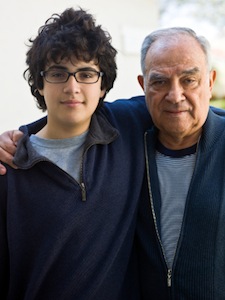VORP- Victim Offender Reconciliation Program
Started in 1986, VORP was the first program for Community Mediation Services.
VORP allows the youth of a non-violent, first time offense to meet with the victim of their crime. This meeting is facilitated by a trained volunteer who helps the parties talk . The goal is to discuss the crime and its effects and to decide on a way for the teen to make things right. This face to face meeting also helps the youth personalize the crime and see the consequences of their actions. This may involve compensation for damages, an apology or even community service and it must be agreed upon by all parties.
There is more to the VORP mediation that just having stolen property returned or financial compensation, the objective is there will also be restoration in the participants’ lives. The mediation is a safe, respectful environment for both the victim and the offender to talk.
Most VORP referrals come to CMS by the Anderson County Juvenile Court Judge or the probation staff. Both victim and offender express satisfaction with the VORP process and currently we have greater than a 90% payment rate on restitutions that parties agree on. VORP works!
VORP Benefits:
Victims
- Participate in a meaningful way to resolve important questions and issues surrounding the crime.
- Hear why the offender did what they did
- Actively artcipate in a restitution agreement. Discuss what it takes to ” right the wrong.”
- Listen to apologies
Offenders
- Realize people have been injured by their acts.
- Opportunity to apologize directly to the victim.
- Participate in determining restitution terms and time frames.
- Take responsibility for their actions.
- Deal with what they have done and move forward
The Community
- Valuable tax dollars are saved by reducing court involvement.
- Community peace and good will are enhanced.
- Victim perceive the justice system as victim friendly
- Conflict resolution skills are spread throughout the community.
The Process:
The program staff will meet with all parties individually before assigning a mediation.
At the mediation, the following process will occur:
- The mediators will make introductions, explain the process, discuss the ground rules, and address the objectives of the meeting.
- Each party will have uninterrupted time to make her/his statement.
- Victims will have an opportunity to ask and receive answers to their questions.
- Offenders will be given time to answer questions and make any comments.
- Restitution options will be discussed.
- A written restitution agreement will be drafted and signed by all parties.
The actual mediation time varies but usually under two hours. The participants of any mediation can vary, but usually cmmon to all are the victim(s), victims support person(s), the offender(s), the parent(s) of the offender(s), and the mediators.
